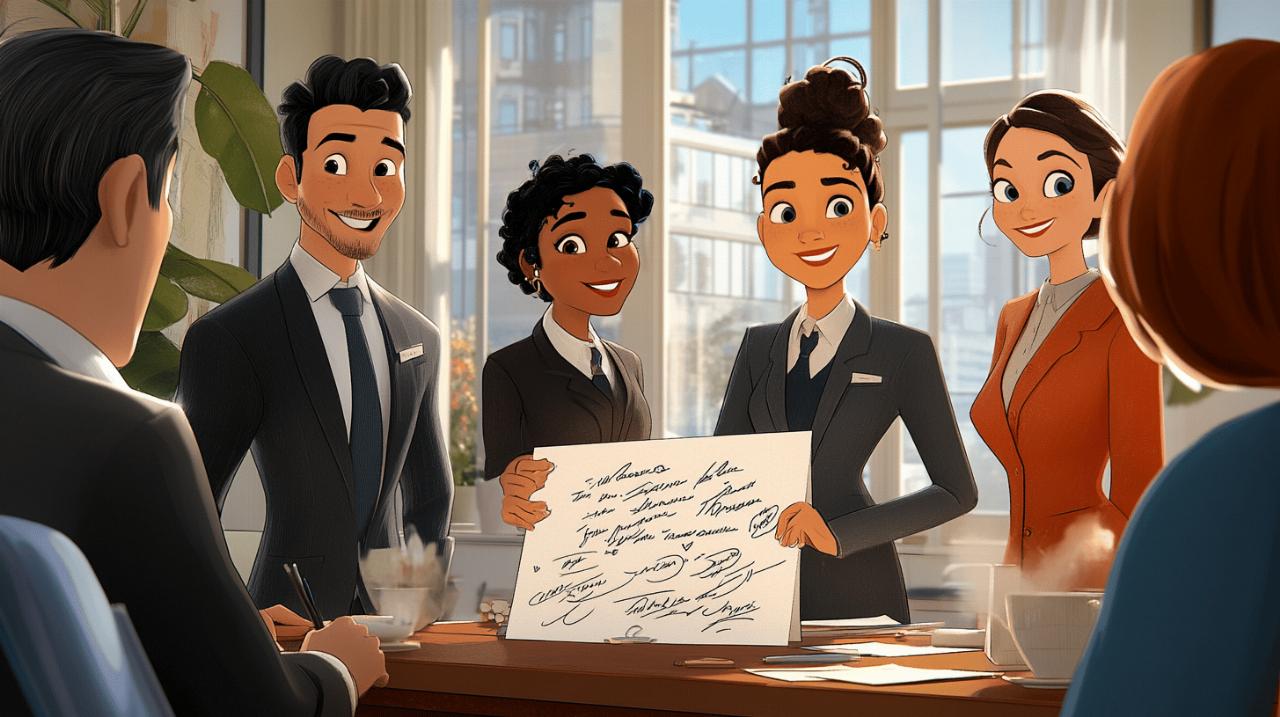When a colleague announces their departure, it's a moment that calls for reflection and appreciation. Whether they're moving on to an exciting new opportunity, heading into retirement, or simply seeking a fresh challenge, the act of bidding them farewell is more than just a formality. It's an opportunity to acknowledge their contributions, celebrate shared experiences, and maintain the professional relationships that have been built over time. Crafting a thoughtful leaving message can feel daunting, but with the right approach, it becomes a meaningful gesture that leaves a lasting impression.
Understanding the Purpose and Context of a Leaving Message
What Is a Farewell Message and Why Does It Matter?
A farewell message is essentially a written or spoken expression of good wishes and gratitude directed towards a colleague who is leaving their position. It serves as a formal acknowledgement of their time with the company and the impact they've had on the team. The importance of sending such a message cannot be overstated. It's not just about good manners, although that's certainly a significant part of it. A well-crafted goodbye message also helps to avoid burning bridges, which is crucial in the professional world. You never know when your paths might cross again, whether in a future collaboration, a job reference, or even a social setting. Beyond the practical considerations, a leaving message offers a chance to express sentiments that may not have been voiced during the daily grind of work. It's a moment to pause and recognise the value that a person brought to the workplace, whether through their hard work, their sense of humour, or their ability to lift team morale during challenging times.
Choosing the Right Format: Card, Email, or Speech at the Leaving Do
The format you choose for your farewell message will depend largely on your relationship with the departing colleague and the customs of your workplace. A leaving card is a classic choice, particularly in offices where it's common to circulate a card for everyone to sign. This format works well for brief, heartfelt messages that can be read at leisure. An email is another popular option, especially in workplaces where remote work is prevalent or where colleagues are spread across different locations. Emails allow for a bit more detail and can be easily archived for future reference. If the colleague is being honoured with a leaving do or farewell party, a short speech might be appropriate. This is particularly true if you're in a managerial position or if you've worked closely with the person who's leaving. The key is to tailor your message to the context, ensuring that it feels appropriate and sincere rather than forced or overly formal.
Essential Elements for Crafting a Heartfelt and Professional Farewell Message
Acknowledging contributions and expressing gratitude
The cornerstone of any effective goodbye message is the acknowledgement of the colleague's contributions. This doesn't require an exhaustive list of every project they've worked on, but it should touch on the ways in which they've made a difference. Perhaps they were the person who always stepped up during busy periods, or maybe they brought a unique perspective to team discussions that helped solve problems more creatively. Expressing gratitude is equally important. A simple thank you can go a long way, but it's even more powerful when it's specific. Instead of saying something generic like 'Thanks for everything', try to pinpoint a particular instance where their help was invaluable. This level of detail shows that you've genuinely appreciated their efforts and that your message isn't just a copy-and-paste job. Research indicates that millions of people change jobs each year, with January alone seeing over five million departures in the United States, so making your message stand out with personal touches is all the more meaningful.
Adding a Personal Touch with Memories and Anecdotes
One of the most effective ways to make a farewell message memorable is to include a personal anecdote or a shared memory. This could be a funny incident that happened during a team outing, a challenging project that you both worked on late into the evening, or even a small moment that might seem insignificant but has stuck with you. These personal touches transform a standard goodbye note into something that feels genuine and heartfelt. They remind the recipient of the human connections that make work more than just a job. When choosing an anecdote, aim for something that's lighthearted and positive. This isn't the time to bring up contentious issues or awkward moments. The goal is to leave your colleague with a warm feeling and a smile, not to reopen old wounds or dredge up uncomfortable memories.
Real-World Examples of Brilliant Leaving Messages for Every Occasion
Short and Sweet Messages for Leaving Cards
 Sometimes brevity is the best approach, especially when you're contributing to a group card where space is limited. A short message can still be impactful if it's sincere and well-chosen. For instance, you might write something like 'All the best in your new role. Your positive attitude and dedication have been an inspiration to us all. Don't be a stranger!' This type of message hits all the right notes without overwhelming the reader. Another example could be 'Wishing you every success as you embark on this new chapter. It's been a pleasure working alongside you, and I'll miss our daily chats.' These messages are ideal for situations where you know the colleague well enough to want to say something meaningful, but where a lengthy note would be out of place. They strike a balance between professionalism and warmth, making them suitable for most workplace contexts.
Sometimes brevity is the best approach, especially when you're contributing to a group card where space is limited. A short message can still be impactful if it's sincere and well-chosen. For instance, you might write something like 'All the best in your new role. Your positive attitude and dedication have been an inspiration to us all. Don't be a stranger!' This type of message hits all the right notes without overwhelming the reader. Another example could be 'Wishing you every success as you embark on this new chapter. It's been a pleasure working alongside you, and I'll miss our daily chats.' These messages are ideal for situations where you know the colleague well enough to want to say something meaningful, but where a lengthy note would be out of place. They strike a balance between professionalism and warmth, making them suitable for most workplace contexts.
More Personal Messages for Close Colleagues and Team Members
When you're writing to someone you've worked closely with or consider a friend as well as a colleague, you can afford to be a bit more personal and detailed. A message like 'I've really enjoyed working with you over the past few years. I'll always remember that time we stayed late to finish the presentation and ended up ordering pizza at midnight. Your sense of humour and work ethic have made even the toughest projects bearable. Best of luck in your new position. I'm sure you'll smash it! Drop me an email sometime. I'd love to hear how you're getting on.' This type of message demonstrates a genuine connection and provides specific details that show you've paid attention to the relationship. It's appropriate for situations where you've built a strong rapport with the departing colleague and want to express that bond clearly. Another approach might be 'Thank you for being such a brilliant team member. Your input on projects has always been thoughtful and your willingness to help others has not gone unnoticed. I hope your new company appreciates you as much as we do. Farewell and all the best for the future.'
Top Tips for Keeping Your Farewell Message Genuine and Positive
Tailoring Your Tone to Suit Your Relationship with the Colleague
The tone of your farewell message should reflect the nature of your relationship with the person who's leaving. If you've had a formal, professional relationship, your message should maintain that level of decorum. On the other hand, if you've shared a more relaxed and friendly dynamic, a bit of humour and informality is perfectly acceptable. The key is to be authentic. Don't try to inject humour into a message if that's not how you typically interact, as it will come across as forced. Similarly, if you've always had a warm and jovial relationship, a stiff and overly formal message might feel out of place. Consider also the reason for their departure. If they're retiring after decades of service, a message that highlights their career achievements and the legacy they're leaving behind is appropriate. If they're moving to a new job, focus on the excitement of new beginnings and the skills they'll bring to their next role. If the departure is due to less positive circumstances, such as redundancy, a message of support and encouragement is more fitting.
Avoiding common pitfalls: proofreading and staying sincere
One of the most overlooked aspects of writing a farewell message is the importance of proofreading. A message riddled with spelling mistakes or grammatical errors can undermine the sincerity of your words and make you appear careless. Take a moment to read through your message before sending it or signing the card. Check for typos, awkward phrasing, and any content that might be misinterpreted. It's also wise to avoid clichés and overly generic statements. Phrases like 'It's been a pleasure working with you' are fine as part of a message, but they shouldn't be the entirety of it. Aim for specificity and genuine sentiment. Another common pitfall is insincerity. If you didn't have a great relationship with the colleague who's leaving, it's better to keep your message brief and neutral rather than trying to fake a warmth that doesn't exist. A simple 'Wishing you all the best in your future endeavours' is perfectly acceptable and maintains professionalism without being dishonest. Finally, consider the timing of your message. Sending it the day before or on the morning of the colleague's last day ensures they have time to read it and respond if they wish. Leaving it too late can make the gesture feel rushed and less thoughtful.





